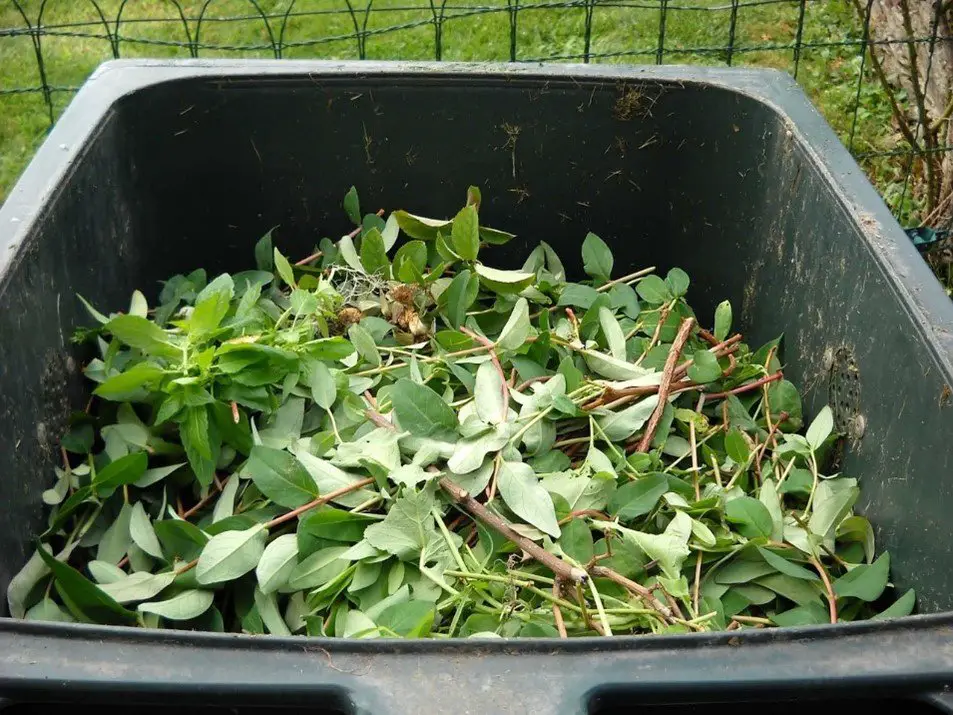Managing yard waste in an eco-friendly manner is beneficial for the environment, the health, and the aesthetics of your property. From leaves and grass clippings to branches and pruning debris, finding sustainable solutions for handling yard waste can significantly reduce your carbon footprint and contribute to a healthier ecosystem.
Here are ten eco-friendly yard waste tips for managing waste on your property:
Composting
Composting is one of the most effective and environmentally friendly methods for managing yard waste. By composting organic materials such as grass clippings, leaves, branches, and garden trimmings, you can create nutrient-rich soil amendments for your garden beds and landscaping.
Set up a compost bin or pile in a designated area of your property and layer organic materials with a balance of green (nitrogen-rich) and brown (carbon-rich) materials. Regularly turn the compost pile to aerate it and facilitate decomposition. Over time, the organic matter will break down into nutrient-dense compost that can be used to enrich the soil and promote plant growth, all while diverting waste from landfills.

Mulching
Mulching is another eco-friendly way to manage yard waste while providing numerous benefits to your landscape. Shredded leaves, grass clippings, and small branches can be used as mulch to suppress weeds, retain moisture, regulate soil temperature, and improve soil fertility. Spread a layer of mulch around trees, shrubs, flower beds, and garden paths to conserve water and enhance the health of your plants.
As the mulch decomposes, it releases nutrients back into the soil, further enriching the growing environment. Mulching not only reduces the need for synthetic fertilizers and pesticides but also minimizes the amount of waste sent to landfills.
Renting a Wood Chipper
If you have a large volume of woody waste, consider renting a wood chipper to process branches and brush into wood chips. Use the wood chips as mulch in your garden beds, pathways, or around trees and shrubs. Wood chips help conserve soil moisture, regulate soil temperature, and prevent soil erosion while providing habitat for beneficial soil organisms.
Grasscycling
Grasscycling, or leaving grass clippings on the lawn after mowing, is a simple and eco-friendly practice that can benefit your lawn and the environment. Instead of bagging and disposing of grass clippings, allow them to decompose naturally on the lawn. Grass clippings act as a natural fertilizer, returning valuable nutrients such as nitrogen and potassium to the soil. They also help to retain moisture, reduce evaporation, and suppress weed growth.
Grasscycling saves time and energy and reduces greenhouse gas emissions associated with transporting and processing yard waste.
Rain Gardens
Create a rain garden in your yard to manage stormwater runoff and filter pollutants while utilizing yard waste. Designate a low-lying area where water naturally collects during rainfall and plant native vegetation such as grasses, wildflowers, and shrubs. Use organic mulch, compost, and leaf litter to amend the soil and enhance its water retention capacity.
Yard Waste Recycling Programs
Many municipalities offer yard waste recycling programs that accept various organic materials for composting or mulching. Check with your local waste management authority or recycling center to inquire about available programs and guidelines for disposing of yard waste.
Some communities provide curbside pickup of yard waste or operate drop-off facilities where residents can recycle materials such as leaves, branches, and grass clippings. Participating in yard waste recycling programs helps to divert organic waste from landfills and supports local composting initiatives.
Hugelkultur Beds
Hugelkultur is a permaculture technique that involves building raised garden beds filled with woody debris, organic matter, and soil. Construct Hugelkultur beds using logs, branches, leaves, and other yard waste layered with compost and topsoil. As the woody materials decompose, they release nutrients into the soil, creating a fertile growing environment for vegetables, herbs, and flowers.
DIY Projects and Crafts
Get creative with your yard waste by repurposing it for DIY projects and crafts. Branches, twigs, and fallen leaves can be used to create natural decorations, garden structures, and artistic displays.
Build a rustic trellis for climbing plants, craft a bird feeder from recycled materials, or assemble a decorative wreath using dried foliage. Upcycling yard waste into functional or decorative items can reduce waste, unleash your creativity, and add a personal touch to your outdoor spaces.

Community Sharing and Exchange
Consider setting up a community yard waste sharing and exchange program. In this program, neighbors can swap or share excess yard waste for use in their own gardens and landscaping projects. This promotes community engagement, reduces waste disposal costs, and fosters a sense of environmental stewardship among residents.
Chop-and-Drop
Adopt the chop-and-drop method by cutting back overgrown vegetation and allowing the trimmings to decompose. Instead of removing pruned branches and foliage from your garden, chop them into smaller pieces and lay them on the soil surface as a natural mulch. This practice adds organic matter to the soil, suppresses weeds, and improves soil moisture retention.
Closing Thoughts
Managing yard waste in an eco-friendly manner is not only beneficial for the environment but also for your garden’s health and vitality.
By composting, mulching, grasscycling, creating leaf mold, building woody debris habitat piles, adopting the chop-and-drop method, renting a wood chipper, establishing rain gardens, constructing Hugelkultur beds, and participating in community sharing and exchange programs, you can effectively use yard waste while minimizing its environmental impact.
Embrace these eco-friendly practices to transform yard waste into valuable resources that enhance soil fertility, conserve water, support biodiversity, and promote sustainable landscaping practices on your property.


